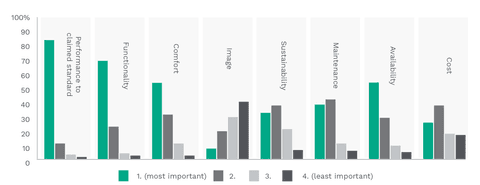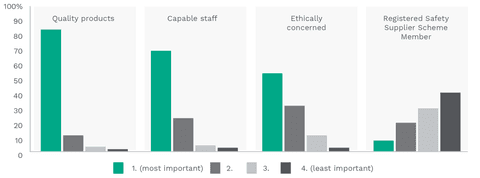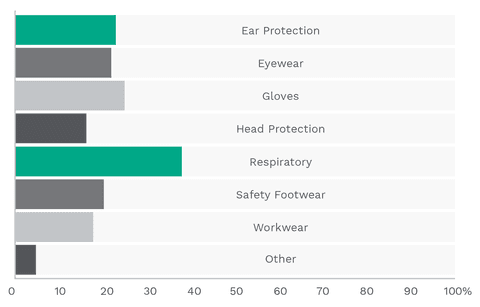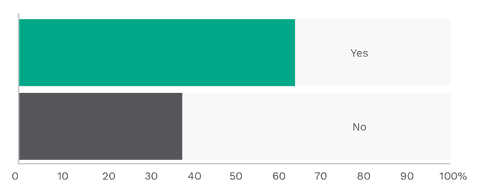
Surveys play a key part in understanding what drives our clients’ PPE considerations, what they look for in their supplier partner, and how they view the future of PPE development and innovation.
A 2022 Health & Safety Matters (HSM) PPE market survey has produced some revealing insights. I react to four results in particular and explain what they mean and why they raise concerns about worker safety.

My first reaction to this result was to be both surprised and frustrated. I really didn’t want to see the most important consideration for people sourcing PPE as ‘performance to claimed standard’.
It means either companies are using uncertified PPE that isn’t to standard (concerning), or they don’t know why they should choose a supplier who is a British Safety Industry Federation (BSIF) member.
As a BSIF member, Tower make an annual declaration and are audited and tested to prove that we only supply genuine products that are tested and certified to standards.
This reassurance that performance will ALWAYS be to claimed standards, allows buyers and wearers to focus instead on functionality and comfort as their key considerations.
Instead of the result we got, these two attributes should always be the most important, as they impact the use of PPE and the likelihood of it to fulfil its purpose as the last line of defence.

This was another frustrating one for me. And it further highlights the need for us to get the message out there of what it means to be a Registered Safety Supplier Member.
It’s frustrating because if a buyer prioritised Registered Safety Supplier Scheme Member in their supplier search over everything else, it would provide reassurance on all the other three categories.
I try to help buyers understand that by virtue of a declaration of membership to the BSIF, a supplier is already guaranteed to provide quality products.
Not only that, a membership also confirms that staff are always capable and the people you deal with will be ethically concerned. It makes it all a given from the start.

This is an intriguing result. It’s likely that people are associating respiratory protective equipment (RPE) with innovation because the pandemic has put the spotlight on any shortfalls in design.
But I have found that by far the biggest innovations in PPE are in sustainability. And sustainability as a driver for innovation covers most, if not all the other categories from the survey question.
Innovations include biodegradable and certified carbon neutral disposable gloves, post-consumer and recycled polyester PPE workwear, and even safety footwear made from recycled bottles!
These sustainability innovations are making it possible for more companies to improve sustainability. It’s one of the hottest topics I talk about with buyers, and sustainability is a core focus for Tower.

There’s only one right answer: yes! Legally, written instructions must be provided with PPE. And yet over 35% believed this was not the case. This may again point to experiences with uncertified PPE.
Both those issuing the PPE and those wearing it should be encouraged to pay attention to written instructions and read them carefully. And not just when they first use it either.
Employers must also ensure workers have sufficient information, instruction, and training on its use. That includes PPE care, maintenance, compatibility, and how to safely combine complementary PPE.
This result has only increased my passion to get an important Tower message out there to those that issue PPE to workers: “Just because it fits, doesn’t mean you are automatically protected.”
If you want to talk about the sustainable PPE options available or find out more on the benefits of working with a member of the BSIF, simply fill out a contact from below and we’ll get back to you.